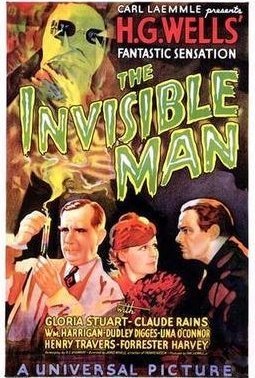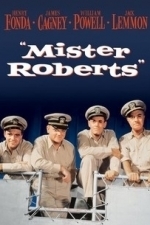Search
Search results
Raymond Pettibon recommended The Death and Letters of Alice James in Books (curated)
Gary Giddins recommended The Lady Eve (1941) in Movies (curated)
Contains spoilers, click to show
The Shakespeare Stories: Henry V, A Midsummer Night's Dream, The Merchant of Venice, Hamlet by Andrew Matthews presents four of William Shakespeare’s famous plays in an easy-to-digest format for kids. Accompanied by Tony Ross’ illustrations, Matthews re-imagines these Shakespearean plays as short stories more akin to classic fairy tales.
Matthews manages to take some of the most plot-heavy and confusing Shakespeare plays and break them down to their most basic elements. The language is easy to follow without lacking intellect or wit, and he stays true to Shakespeare’s concepts and characters. Illustrated short stories for kids are a no-brainer for getting children interested in William Shakespeare, and Matthews was smart to dive into the genre. He isn’t reinventing the wheel, but he is making the wheel accessible to a wide range of audiences.
I like how it has pictures, gives the cast and a quote from the original play. Then it tells the story and finishes up with an explanation of what just happened and some history of Shakespeare and the play.
Matthews manages to take some of the most plot-heavy and confusing Shakespeare plays and break them down to their most basic elements. The language is easy to follow without lacking intellect or wit, and he stays true to Shakespeare’s concepts and characters. Illustrated short stories for kids are a no-brainer for getting children interested in William Shakespeare, and Matthews was smart to dive into the genre. He isn’t reinventing the wheel, but he is making the wheel accessible to a wide range of audiences.
I like how it has pictures, gives the cast and a quote from the original play. Then it tells the story and finishes up with an explanation of what just happened and some history of Shakespeare and the play.
Mark @ Carstairs Considers (2492 KP) rated L is for Lawless in Books
Sep 8, 2018
Simple Favor Gets Out of Control
Kinsey is taking a rare week off from her PI business for William and Rosie’s wedding, but before she can get too relaxed, Henry asks her for a small favor. One of their neighbors has recently passed, and his family is having a hard time getting the death benefits from the government since they have no record of this man having been in the service during World War II. Kinsey doesn’t intend to get too involved, but when the man’s place is broken into and searched, she becomes curious. Just what is really happening?
I love it when a book takes off in ways I don’t expect, and that’s just what happened with this one. The plot was great, and even when we have most of the answers, there is still the question of what will happen next to Kinsey to keep the pages turning. It is fun to meet the rest of William and Henry’s family, and the character involved in the mystery are as strong as always. A series thread introduced a couple of books back comes into play here again as well. Fans of the series who have missed this one won’t be disappointed.
I love it when a book takes off in ways I don’t expect, and that’s just what happened with this one. The plot was great, and even when we have most of the answers, there is still the question of what will happen next to Kinsey to keep the pages turning. It is fun to meet the rest of William and Henry’s family, and the character involved in the mystery are as strong as always. A series thread introduced a couple of books back comes into play here again as well. Fans of the series who have missed this one won’t be disappointed.
Matthew Krueger (10051 KP) rated Maverick (1994) in Movies
Jul 14, 2020 (Updated Jul 14, 2020)
Play Your Cards Right
Maverick- is a funny entertaining western with action, poker and adventure. Richard Donner does it once again.
The plot: This film update of the "Maverick" TV series finds the title cardsharp (Mel Gibson) hoping to join a poker contest with an impressive payoff. In order to enter, Maverick must first put up a large cash sum. He scams hopeful contestants Annabelle (Jodie Foster) and Angel (Alfred Molina) in a preliminary card game to win the money he needs, making enemies of both players. While trying to evade Annabelle and Angel, the crafty Maverick realizes a cunning marshal (James Garner) is also on his tail.
Many cameo appearances by Western film actors, country music stars and other actors. Including Danny Glover, Hal Ketchum, Corey Feldman, Read Morgan, Steve Kahan, Art LaFleur, Leo Gordon, Denver Pyle, Robert Fuller, Doug McClure, Henry Darrow, William Smith, Charles Dierkop, William Marshall, Dennis Fimple, Bert Remsen and Margot Kidder.
Danny Glover's cameo appearance references Donner's Lethal Weapon film series starring Glover and Gibson as cop partners. Their meeting in Maverick sees them share a moment of recognition, complete with Lethal Weapon music, and as he leaves, Glover says Roger Murtaugh's catchphrase: "I'm getting too old for this shit."
Country singers also cameo including Carlene Carter, Waylon Jennings, Kathy Mattea, Reba McEntire, Clint Black, Vince Gill and Janis Gill.
Its a funny entertaining western. A must watch.
The plot: This film update of the "Maverick" TV series finds the title cardsharp (Mel Gibson) hoping to join a poker contest with an impressive payoff. In order to enter, Maverick must first put up a large cash sum. He scams hopeful contestants Annabelle (Jodie Foster) and Angel (Alfred Molina) in a preliminary card game to win the money he needs, making enemies of both players. While trying to evade Annabelle and Angel, the crafty Maverick realizes a cunning marshal (James Garner) is also on his tail.
Many cameo appearances by Western film actors, country music stars and other actors. Including Danny Glover, Hal Ketchum, Corey Feldman, Read Morgan, Steve Kahan, Art LaFleur, Leo Gordon, Denver Pyle, Robert Fuller, Doug McClure, Henry Darrow, William Smith, Charles Dierkop, William Marshall, Dennis Fimple, Bert Remsen and Margot Kidder.
Danny Glover's cameo appearance references Donner's Lethal Weapon film series starring Glover and Gibson as cop partners. Their meeting in Maverick sees them share a moment of recognition, complete with Lethal Weapon music, and as he leaves, Glover says Roger Murtaugh's catchphrase: "I'm getting too old for this shit."
Country singers also cameo including Carlene Carter, Waylon Jennings, Kathy Mattea, Reba McEntire, Clint Black, Vince Gill and Janis Gill.
Its a funny entertaining western. A must watch.
Deborah (162 KP) rated The Tudor Rose in Books
Dec 21, 2018
This book was written over 50 years ago, so I suppose we must make some allowances for light that has been shed on past events between now and then, but still, there were a number of silly errors in this book which didn't help its credibility: the pre-contract was with Eleanor Butler (nee Talbot) and for some odd reason the book gives her given name as Joan, and Edmund Tudor died of the plague and not in battle.
Overall the book follows a somewhat traditionalist stance, although Henry Tudor comes across as pretty cold and unlikeable. I wasn't convinced by some of the internal logic and some of the characterisation though. Anne Neville, for example. She is a figure we really don't know that much about, but it's hard to conceive she could be as simple and naive as she is portrayed here! Barnes does try it on a bit with trying to make us wonder if 'Perkin' is really Richard of York (and here the historical novelist has licence, because we really don't know!), despite having Bess keep adamantly stating that she knows her brothers are dead. We're also told that Elizabeth Woodville believes they died, which might lead one to question why she would have a finger in a rebellion against her daughter as queen consort? And if everybody really believed this, why did Sir William Stanley lose his head for saying he wouldn't fight against 'Perkin' if he was really a son of Edward IV - and that is in the historical record as well as this novel. There's an awful lot about Bess believing both Richard and Henry have potentially been culpable in acts of murder, but she herself in this novel is guilty of an act of treachery that is at least as bad!
Not a badly written novel, but I found it frustrating overall!
Overall the book follows a somewhat traditionalist stance, although Henry Tudor comes across as pretty cold and unlikeable. I wasn't convinced by some of the internal logic and some of the characterisation though. Anne Neville, for example. She is a figure we really don't know that much about, but it's hard to conceive she could be as simple and naive as she is portrayed here! Barnes does try it on a bit with trying to make us wonder if 'Perkin' is really Richard of York (and here the historical novelist has licence, because we really don't know!), despite having Bess keep adamantly stating that she knows her brothers are dead. We're also told that Elizabeth Woodville believes they died, which might lead one to question why she would have a finger in a rebellion against her daughter as queen consort? And if everybody really believed this, why did Sir William Stanley lose his head for saying he wouldn't fight against 'Perkin' if he was really a son of Edward IV - and that is in the historical record as well as this novel. There's an awful lot about Bess believing both Richard and Henry have potentially been culpable in acts of murder, but she herself in this novel is guilty of an act of treachery that is at least as bad!
Not a badly written novel, but I found it frustrating overall!
Hazel (2934 KP) rated The Stable Boy of Auschwitz [Audiobook] in Books
Mar 26, 2023
I have read a few books about the Holocaust during World War II but I have never listened to one before and, let me tell you, I found this audiobook just as powerful and heart-wrenching listening to William Hope's excellent narration.
Each book I have read about the Holocaust and World War II has provided another piece of history I was not fully aware of and The Stable Boy of Auschwitz is no different. It charts the remarkable life of Henry Oster before, during and after the war.
It is, as you can imagine, a very difficult book to read/listen to but it is also very powerful and inspirational and shows one boy's exceptional journey of survival from freedom, to the ghetto, to Auschwitz, on the forced marches, to Buchenwald and, finally, freedom again and is a story that should be shared as all survivors accounts should be.
I must thank Bookouture Audio and NetGalley for enabling me to listen to and share my thoughts of The Stable Boy of Auschwitz and for continuing to ensure that these stories continue to be published so they are not forgotten.
Each book I have read about the Holocaust and World War II has provided another piece of history I was not fully aware of and The Stable Boy of Auschwitz is no different. It charts the remarkable life of Henry Oster before, during and after the war.
It is, as you can imagine, a very difficult book to read/listen to but it is also very powerful and inspirational and shows one boy's exceptional journey of survival from freedom, to the ghetto, to Auschwitz, on the forced marches, to Buchenwald and, finally, freedom again and is a story that should be shared as all survivors accounts should be.
I must thank Bookouture Audio and NetGalley for enabling me to listen to and share my thoughts of The Stable Boy of Auschwitz and for continuing to ensure that these stories continue to be published so they are not forgotten.
Matthew Krueger (10051 KP) rated The Invisible Man (1933) in Movies
Mar 4, 2020
Universal Monster
This movie is such a classic, it came out after dracula, frankenstein and the mummy. Out of all the universal monster movies, i like this one the most. It combines sci-fi, horror, psychological espects, and overall the invisible man just being a dick/asshole to everybody in his pathway. This classic movie is based off of a H.G. Wells novel, and if you dont know who that is, look him up..."The War of the Worlds".
The plot: While researching a new drug, Dr. Jack Griffin (Claude Rains) stumbles on a potion that can make him invisible. When he reveals his new ability to his old mentor (Henry Travers) and his fiancée (Gloria Stuart), it's clear that a side effect of the potion is insanity. Jack goes on a violent rampage, and the police struggle to hunt him down, unable to see their target, while his mentor and his former partner (William Harrigan) desperately try to devise a plan to capture him.
You have Claude Rains playing "The Invisible Man", he is excellent in this film. Cause like i said his charcter is just a dick/asshole to everybody in his pathway but has a heart of gold for his love.
If you havent seen this film, i would highly recordmend it, cause it is fantasic and phenomenal.
The plot: While researching a new drug, Dr. Jack Griffin (Claude Rains) stumbles on a potion that can make him invisible. When he reveals his new ability to his old mentor (Henry Travers) and his fiancée (Gloria Stuart), it's clear that a side effect of the potion is insanity. Jack goes on a violent rampage, and the police struggle to hunt him down, unable to see their target, while his mentor and his former partner (William Harrigan) desperately try to devise a plan to capture him.
You have Claude Rains playing "The Invisible Man", he is excellent in this film. Cause like i said his charcter is just a dick/asshole to everybody in his pathway but has a heart of gold for his love.
If you havent seen this film, i would highly recordmend it, cause it is fantasic and phenomenal.
BankofMarquis (1832 KP) rated Mister Roberts (1955) in Movies
Apr 10, 2020
Well Acted
A staple of Old Hollywood under the Studio System was to adapt to the film Broadway shows that were a big hit. One such hit was the 1948 WWII play MISTER ROBERTS starring Henry Fonda (who would win a Tony Award for his performance).
In 1955, Paramount Studios mounted a film production of MISTER ROBERTS starring Fonda, James Cagney (in his last film role for Paramount - who he had been under contract to for 25 years), William Powell (in his last film role) and a young "up-and-comer" by the name of Jack Lemon.
Set in the waning days of World War II aboard a "cargo vessel", MISTER ROBERTS tells the tale of...well...Mister Roberts, the cargo officer who is keeping the ship afloat - serving as a buffer between the crew and the tyrannical Captain. Roberts longs for one thing - to join the war on a battleship, but the Captain knows his success is dependent on Roberts.
Paramount considered Fonda too old for the role, so they sought out younger stars like Marlon Brando and William Holden, but Director John Ford insisted on Fonda - and a wise choice it was. Fonda's easy-going natural personality - tinged with anger and regret - is perfectly suited for this role. He is just as at home joking around with the sailors as he is going mano-a-mano with the Captain. Also perfectly cast is the great James Cagney as the Captain who is only concerned about 1 thing - how he is perceived by the higher ups in the Navy. The conflict between Cagney and Fonda is dynamite and it is worth the price of admission just to watch these 2 Hollywood heavyweights go at it.
Jack Lemon won his first Oscar (as Best Supporting Actor) for portraying Mr. Roberts bunkmate, Ensign Pulver. It is a perfect match of character and actor and you can see where the greatness that is Jack Lemon (an under-rated actor) stems from. The surprise to me at this viewing was the strong work of William Powell (THE THIN MAN movie series) as Doc, the best friend of Mr. Roberts aboard the ship. He has an ease and rapport with Fonda and when Fonda, Powell and Lemon share the screen together the film sparkles.
And that's the best part - and the worst part - of this great film. It looks like a filmed stage play. Veteran Director John Ford looks like he was "mailing it in" on this one, in that he would just put his camera in one stationary position and let his actors play the scenes like they were in a play. This is either laziness - or genius - at the hands of Ford (I would argue probably a little of each). He was wise enough to know he had some incredible talent (Fonda, Cagney, Powell and Lemon) - and a strong script by Frank S. Nugent and Joshua Logan (based on the stage play by Logan and Thomas Hagen...based on Hagen's book), so he stayed out of the way as much as possible.
Consequently, the first part of this film is a bit talky and stagey looking and drags just a bit, but once the film catches it's steam - and these 4 stars light up the screen - this film is well worth watching.
Letter Grade: A
9 stars (out of 10) and you can take that to the Bank(ofMarquis)
P.S.: I caught Mister Roberts on the great cable channel TURNER CLASSIC MOVIES - but (as far as I can tell) it's not scheduled to be re-run there anytime soon (and is not streamable on the Watch TCM app), so you'll need to rent it at all the "normal" places (YouTube, GoogePLay, iTunes and Vudu)
In 1955, Paramount Studios mounted a film production of MISTER ROBERTS starring Fonda, James Cagney (in his last film role for Paramount - who he had been under contract to for 25 years), William Powell (in his last film role) and a young "up-and-comer" by the name of Jack Lemon.
Set in the waning days of World War II aboard a "cargo vessel", MISTER ROBERTS tells the tale of...well...Mister Roberts, the cargo officer who is keeping the ship afloat - serving as a buffer between the crew and the tyrannical Captain. Roberts longs for one thing - to join the war on a battleship, but the Captain knows his success is dependent on Roberts.
Paramount considered Fonda too old for the role, so they sought out younger stars like Marlon Brando and William Holden, but Director John Ford insisted on Fonda - and a wise choice it was. Fonda's easy-going natural personality - tinged with anger and regret - is perfectly suited for this role. He is just as at home joking around with the sailors as he is going mano-a-mano with the Captain. Also perfectly cast is the great James Cagney as the Captain who is only concerned about 1 thing - how he is perceived by the higher ups in the Navy. The conflict between Cagney and Fonda is dynamite and it is worth the price of admission just to watch these 2 Hollywood heavyweights go at it.
Jack Lemon won his first Oscar (as Best Supporting Actor) for portraying Mr. Roberts bunkmate, Ensign Pulver. It is a perfect match of character and actor and you can see where the greatness that is Jack Lemon (an under-rated actor) stems from. The surprise to me at this viewing was the strong work of William Powell (THE THIN MAN movie series) as Doc, the best friend of Mr. Roberts aboard the ship. He has an ease and rapport with Fonda and when Fonda, Powell and Lemon share the screen together the film sparkles.
And that's the best part - and the worst part - of this great film. It looks like a filmed stage play. Veteran Director John Ford looks like he was "mailing it in" on this one, in that he would just put his camera in one stationary position and let his actors play the scenes like they were in a play. This is either laziness - or genius - at the hands of Ford (I would argue probably a little of each). He was wise enough to know he had some incredible talent (Fonda, Cagney, Powell and Lemon) - and a strong script by Frank S. Nugent and Joshua Logan (based on the stage play by Logan and Thomas Hagen...based on Hagen's book), so he stayed out of the way as much as possible.
Consequently, the first part of this film is a bit talky and stagey looking and drags just a bit, but once the film catches it's steam - and these 4 stars light up the screen - this film is well worth watching.
Letter Grade: A
9 stars (out of 10) and you can take that to the Bank(ofMarquis)
P.S.: I caught Mister Roberts on the great cable channel TURNER CLASSIC MOVIES - but (as far as I can tell) it's not scheduled to be re-run there anytime soon (and is not streamable on the Watch TCM app), so you'll need to rent it at all the "normal" places (YouTube, GoogePLay, iTunes and Vudu)
Deborah (162 KP) rated Bosworth Field and the Wars of the Roses in Books
Dec 21, 2018
For starters, the book is entitled Bosworth Field & the Wars of the Roses. Discussion of Bosworth is pretty much restricted to one short chapter and about the first third of the book is taken up with an over-detailed account of the events leading up to the Wars of the Roses; if Rowse is concerned about 'Wars of the Roses' being a misnomer, perhaps he should look to his own title! Yes, the events from the disposition of Richard II in 1399 and the usurpation of his throne by Bolingbroke do have an impact on later events, but a third of the book? Do we really need to know the ins and outs of Sir John Oldcastle's Lollard leanings - I fail to see how this is relevant.
Rowse's chapter on Shakespeare must be at least as long, if not longer, than his chapter on Bosworth. The fact that he obviously sincerely believes that one can gain a credible understanding of history from Shakespeare cycle of plays was almost enough to make me drop the book in astonishment! How can one take him seriously?!
He is also ready to give every credit to the supposed work of More. Even here he falls down by claiming that the bodies of the 'princes in the tower' were discovered in the exact place More said! If you read this work you'll find that the opposite is true - they are in the exact place More said they were NOT! The fact that there isn't a shred of evidence that anyone killed the two princes is evidently a small matter to Rowse. He mentions the great turncoat, Sir William Stanley (at this point step-uncle to Henry Tudor) being executed s a result of the Perkin Warbeck debacle, but fails to mention that Sir William is imputed to have said that if Warbeck really was Richard of York, he would not fight against him. Of course he doesn't mention this - he has to keep reminding us that EVERYONE believed Richard III guilty! Really, a credible historian should not pick and choose their facts - something Alison Weir is also very fond of doing.
Another point is that he is quite happy to accept that Katherine of Valois really did marry Owen Tudor, but cannot countenance the much more credible suggestion that Edward IV was married to Eleanor Butler (nee Talbot), who is not even mentioned. He harps on about the morality and piety of the Lancastrians (despite the Beauforts being conceived in double adultery - further hypocrisy) but when Richard III founds a chantry or offers some concession to a religious house that Rowse concludes it much be down to his uneasy concience.
So, overall, not a book I can recommend in the least. He may try to convince us that his unbending traditionalist view is 'sensible' and 'common sense' but anyone with a little knowledge of the subject will see it as laughably absurd and highly prejudiced.
Rowse's chapter on Shakespeare must be at least as long, if not longer, than his chapter on Bosworth. The fact that he obviously sincerely believes that one can gain a credible understanding of history from Shakespeare cycle of plays was almost enough to make me drop the book in astonishment! How can one take him seriously?!
He is also ready to give every credit to the supposed work of More. Even here he falls down by claiming that the bodies of the 'princes in the tower' were discovered in the exact place More said! If you read this work you'll find that the opposite is true - they are in the exact place More said they were NOT! The fact that there isn't a shred of evidence that anyone killed the two princes is evidently a small matter to Rowse. He mentions the great turncoat, Sir William Stanley (at this point step-uncle to Henry Tudor) being executed s a result of the Perkin Warbeck debacle, but fails to mention that Sir William is imputed to have said that if Warbeck really was Richard of York, he would not fight against him. Of course he doesn't mention this - he has to keep reminding us that EVERYONE believed Richard III guilty! Really, a credible historian should not pick and choose their facts - something Alison Weir is also very fond of doing.
Another point is that he is quite happy to accept that Katherine of Valois really did marry Owen Tudor, but cannot countenance the much more credible suggestion that Edward IV was married to Eleanor Butler (nee Talbot), who is not even mentioned. He harps on about the morality and piety of the Lancastrians (despite the Beauforts being conceived in double adultery - further hypocrisy) but when Richard III founds a chantry or offers some concession to a religious house that Rowse concludes it much be down to his uneasy concience.
So, overall, not a book I can recommend in the least. He may try to convince us that his unbending traditionalist view is 'sensible' and 'common sense' but anyone with a little knowledge of the subject will see it as laughably absurd and highly prejudiced.
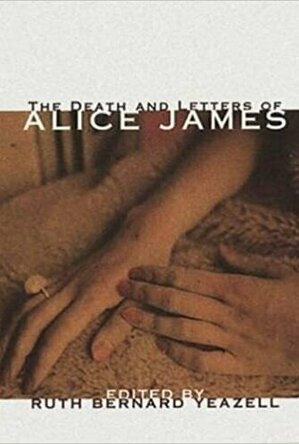
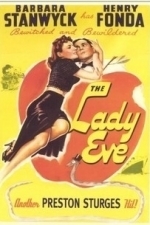
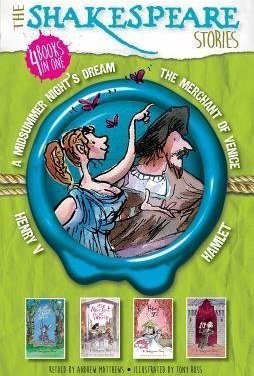
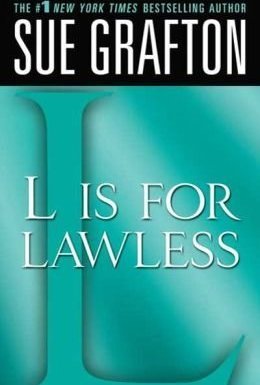
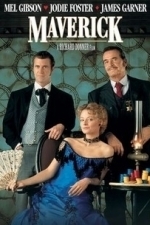

![The Stable Boy of Auschwitz [Audiobook]](/uploads/profile_image/894/4eea604c-e06f-47b8-99c8-008ccb3ac894.jpg?m=1679836550)
